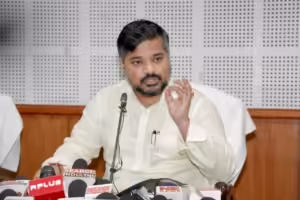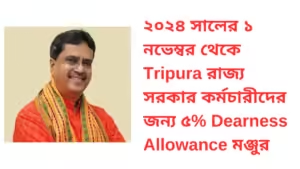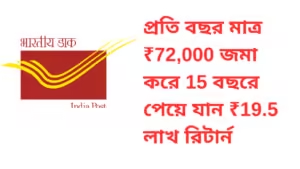The Tripura government on Tuesday has decided to pay the same salaries and allowances to the 10,323 government teachers who are set to lose their jobs on December 31 but whose services have been extended by six months by the Supreme Court.On March 29, the Supreme Court had upheld a Tripura High Court verdict to terminate the their services on grounds of wrongdoing.“The Tripura government urged the Supreme Court to extend their services for another one year beyond December 31. But the apex court last week extended by six months the deadline to terminate them,” Information and Finance Minister Bhanulal Saha told the media.He said: “The Supreme Court on December 14 also ordered that the teachers’ jobs after December 31 would be on ad-hoc basis. The Cabinet on Tuesday decided to give the same salaries, allowances and other benefits during the extended six-month period.”The minister said the state government would not promulgate any ordinance or enact any Validation Act as proposed by a former high court judge and the affected teachers to save the jobs of 10,323 teachers.In an apparent move to circumvent the Supreme Court order, the Tripura government had in May announced recruitment of 12,000 non-teaching staff in the Education Department, ostensibly to “accommodate” these teachers.“Those among the 10,323 teachers who do not qualify in the teachers’ eligibility test (TET) can apply for the non-teaching staff, whose recruitment will start after the Supreme Court withdraws its ban on the recruitment to 12,000 non-teaching staff posts,” Saha added.The state faces dearth of suitable candidates to fill around 16,000 teachers’ posts.According to the minister, the Supreme Court, following a contempt petition, banned on October 4 the recruitment of 12,000 non-teaching staff until the next hearing on January 16. A section of the teachers has also launched intermittent agitations, including road and railway blockades, from December 7 to press for their demand. Ahead of the February 2018 assembly elections, the proposed termination of these teachers and recruitment of 12,000 non-teaching staff is set to become a major political issue.
February 22, 2025




